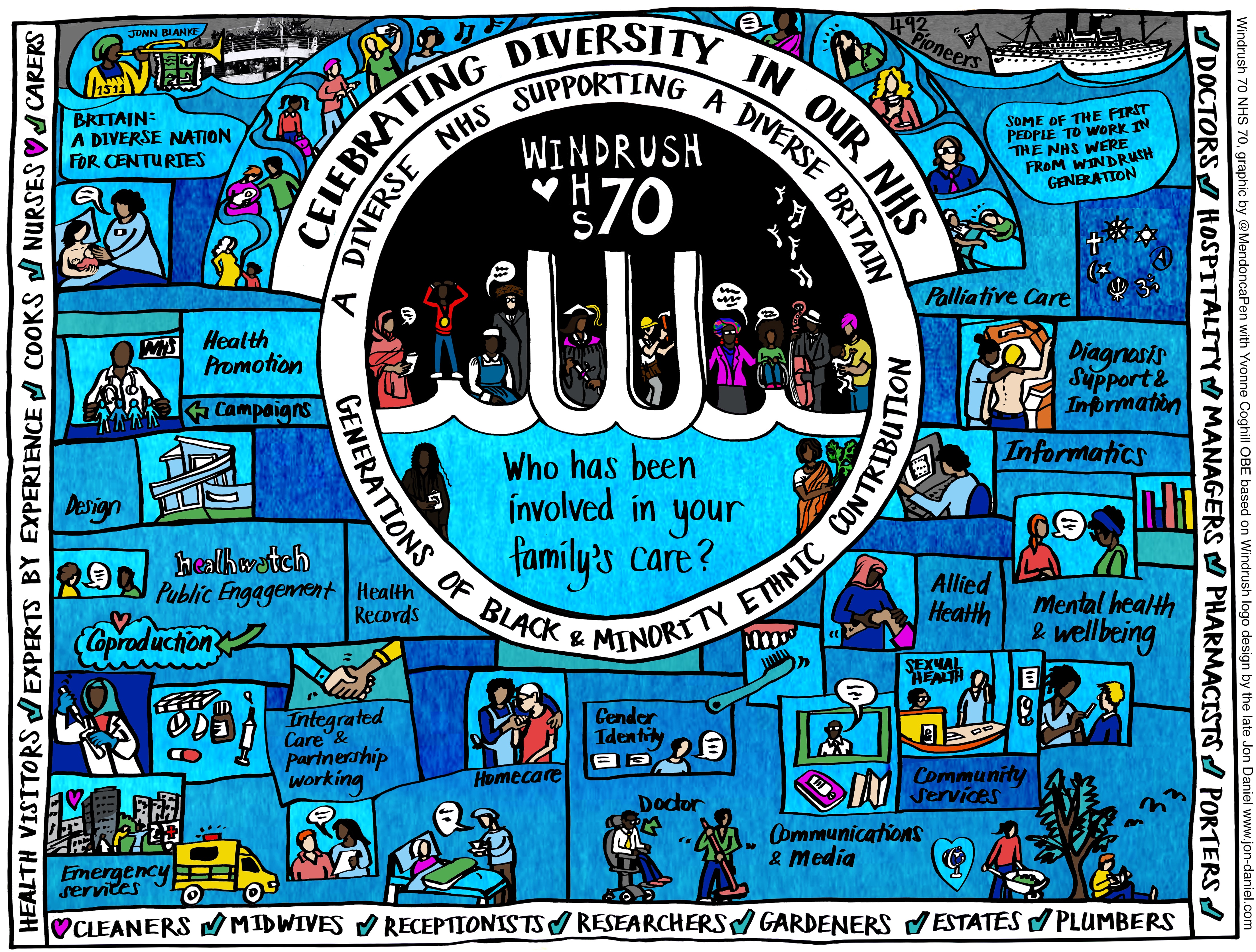We have a number of requirements under the Equality Act 2010. These include publishing information, our objectives and priorities, and the progress we are making towards achieving them.
We have made available a number of public documents:
- Equality Objectives 2023-26, setting out our Equalities Objectives
- Equality Act Compliance Reports, describing our achievements towards complying with the Act
- NHS Workforce Race Equality Standard (WRES)
- NHS Workforce Disability Equality Standard (WDES)
- Equality Delivery System (EDS)
- Equalities monitoring information, providing information about the diversity of our workforce and the people who use our services
- Equality and Human Rights Impact Assessments that we have undertaken on our policies and on developments within the Trust
- Pastoral Spiritual and Cultural Care Report
- Gender Pay Gap report
- Modern slavery statement.
Through an analysis of information and consultation with staff and other stakeholders, the Trust has identified six equalities objectives for 2023 to 2026.
Our objectives for 2023 to 2026 are
- Objective 1. Use SCARF as our behaviour framework to enable all people to integrate EDI into their daily work as leaders and healthcare professionals.
- Objective 2: Continue to monitor and review our Employment and Service delivery processes with a focus on reducing biased based decision-making.
- Objective 3: As part of SCARF behaviour work build measure, assess and undertake targeted action to enable individual’s unique contribution and sense of belonging measured through an inclusion index.
- Objective 4: Improve staff and patient voice to shape a better experience, particularly for those from diverse community backgrounds
- Objective 5: Build trust cultural competencies to address inequalities.
- Objective 6: Establish the Trust as a System Leader on EDI.
- CNWL Equality Act Compliance Report 2018
- CNWL Equality Act Compliance Report 2017
- CNWL Equality Act Compliance Report 2016
- CNWL Equality Act Compliance Report, 2015
- CNWL Equality Act Compliance Report, 2014
- CNWL Equality Act Compliance Report, January 2013
- CNWL Equality Act Compliance Report, January 2012
Mandatory from April 2015, the Workforce Race Equality Standard (WRES) is a set of nine metrics to address the lackof representation of BME staff within senior aspects of the NHS workforce and also improve the working experience of BME staff.
- CNWL WRES report 2023 - 2024
- CNWL WRES report 2022 - 2023
- CNWL WRES Action Plan 2021 - 2022
- CNWL WRES report 2020 - 2021
- CNWL WRES report March 2020
- CNWL WRES Improvement Plan 2018 - 2020
- CNWL WRES report 2018
- CNWL WRES report 2017
- CNWL WRES report 2016
- CNWL WRES report 2015
It is important to highlight the BME contribution to the NHS and celebrate diversity within the NHS. The image below, drawn by artist Pen Mendosa illustrates this (click on the picture to enlarge)

Mandatory from April 2019, the Workforce Disability Equality Standard (WDES) is a set of ten metrics. These Metrics are used to help improve the experience of staff with a disability or mental health condition working within the Trust.
The Trust is committed to disability inclusion for both staff and service users. To achieve this it is important to develop support for and understanding of staff with disabilities needs, celebrate their successes and those who champion disabilities.
Trust plan for 2023/2024 (opens link)
Previous plans:
- Trust plan for 2022/23 (opens link)
- Trust plan for 2021/22 (opens link)
- Trustwide action plan for 2019/2020. Download the plan (PDF).
In 2011, the NHS introduced an Equality Delivery System (EDS) for NHS Trusts, which was refreshed in 2013 as the Equality Delivery System 2 (EDS2) and became the mandatory framework around which NHS Trusts develop their equalities actions from April 2015.
We want to make sure our policies and services take account of the diverse needs of the people that they most affect. Another development during recent years has been the introduction of Equality and Human Rights Impact Assessments (EHRIA). This is a documented process used to assess policies, service developments and changes to identify how they may be contributing positively to the Public Sector Equality Duty and where there may be a risk of an adverse impact on a group of people protected by equalities legislation.
The EHRIAs undertaken within CNWL consider the following equalities characteristics: race/ethnicity, disability, gender, transgender identity, age, sexual orientation, religion/faith, pregnancy and maternity, marriage or civil partnership.
2013
- EHRIA Faith and Spiritual Support Policy
- EHRIA Interpreting Policy
- EHRIA Energy Efficiency Funding Bid
2012
- EHRIA Disability Policy (Service Delivery)
- EHRIA Disability Policy (Employment)
- EHRIA Dual Diagnosis Policy
- EHRIA Dignity at Work Policy
- EHRIA Equality, Diversity and Human Rights Policy (Service Delivery)
- EHRIA Equality, Diversity and Human Rights Policy (Employment)
- EHRIA Mandatory and Statutory Training
- EHRIA Observation and Engagement Policy
- EHRIA Physical Care Policy
- EHRIA Service Disaggregation, Harrow
We are required to produce a Pastoral Spiritual and Cultural Care Report to take into account of the spiritual, religious, pastoral and cultural needs of service users and must liaise with the relevant authorities as appropriate in each case.